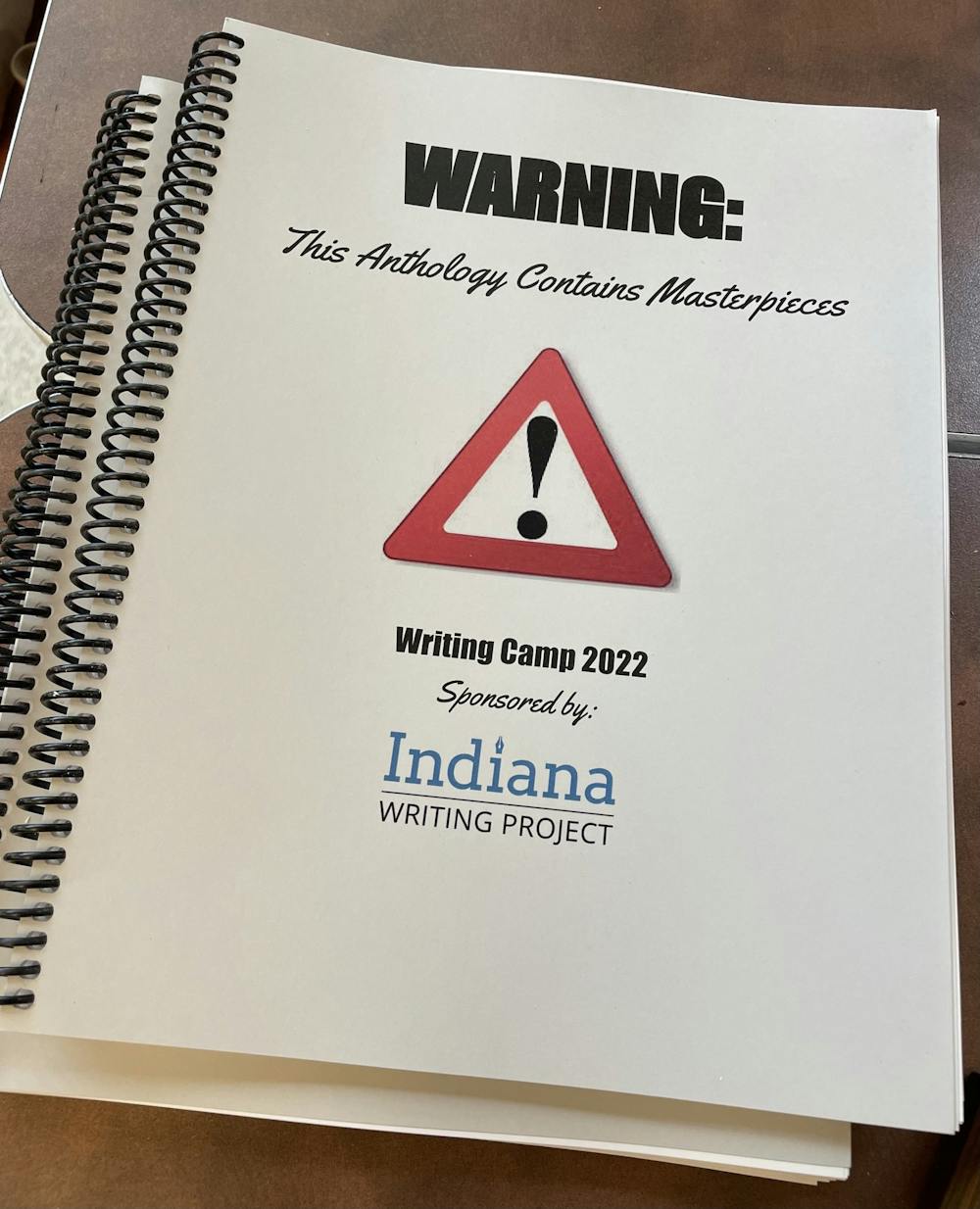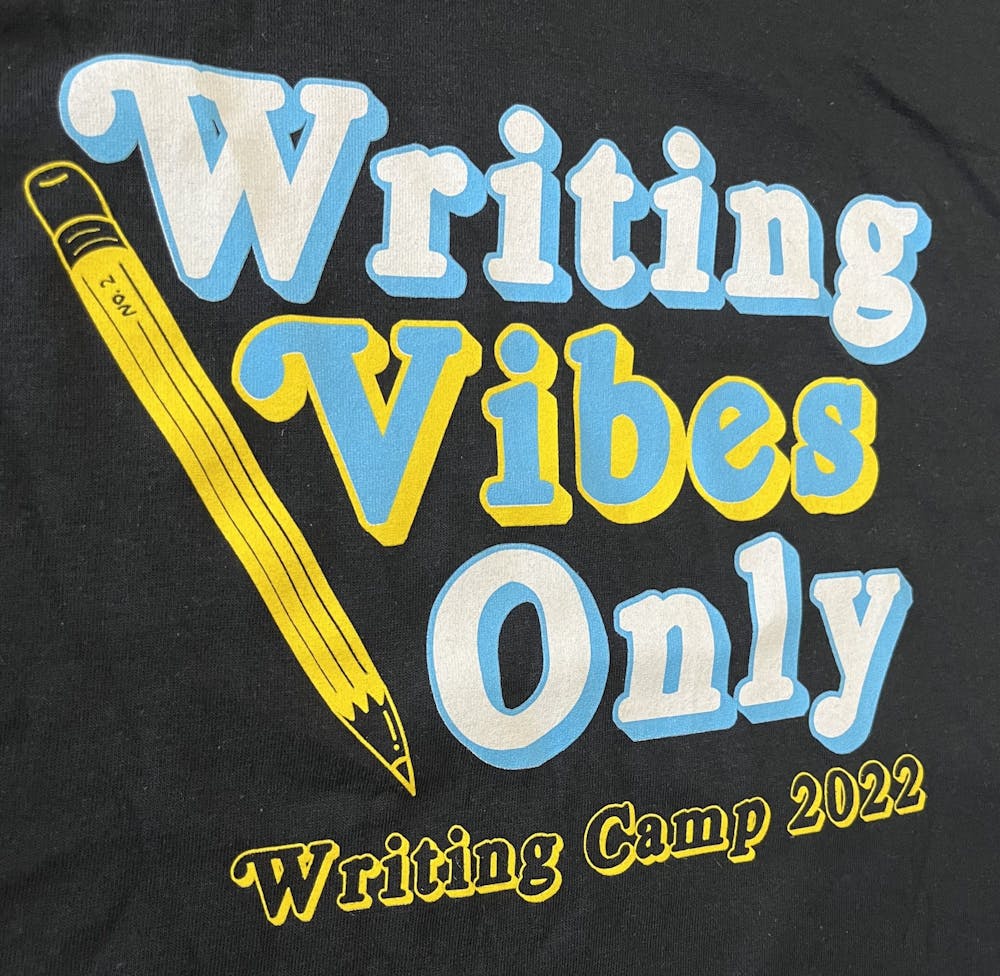Catie Jenkins wrote about the popular Netflix series ‘Stranger Things’.
Danyal Syed wrote about how pesticides affect the foods people eat.
Dovie Oldfield wrote about how weather can affect pets.
Ella Coy wrote about home invasions.
Kathyrn Enos wrote about The Quad on Ball State University’s campus
Macie Elliott wrote about adoption.
Olivia Chatwin wrote about recurring dreams.
Thia Gipson wrote about how to feel at home in a college dorm.
Unnabh Shrestha wrote about Ball State Football and their upcoming season.
These are the names and chosen topics of Delaware County students grades five-nine who participated in Ball State University’s Writing Camp 2022 sponsored by the Indiana Writing Project. The names of and chosen topics from children who yearn to learn more about what they are passionate about.
Amanda Craw, freshman regular and honors English, along with Ball State University dual credit English 103 and 104 teacher at Delta High School, and Julie Fierce, middle school English teacher at Inspire Academy, ran the journalistic writing camp in 2022, their seventh year doing so together. Indiana Writing Project (founded in 1996) camps have been running for decades.
As an educator, Craw said she feels these camps are essential to help young students with curious and creative minds be able to spread their wings outside of the classroom.
“I think our assigned curriculum in schools is kind of going away from creativity,” Craw said. “I think this outlet is really important in fostering creativity that so many students crave. Kids are smarter now than they’ve ever been at this age in the past, however, that comes at a price because with so much knowledge they are gaining, they do less exploration.”
Craw said the camps she helps run “shouldn’t feel like school” in order to help strengthen each student's creative process. To get to know each other, the campers partnered with another and asked them the “five W’s and H, who, what, when, where, why and how” and used the same tactic to try to come up with questions about their chosen topic.
“We’re spending a lot of time at the college, I thought about the dorms and I was wondering, ‘do people feel homesick on their first time being here,’” Gipson said.
Campers shared their topics and their processes of finding these topics. They shared what they learned and what they were excited about doing as the camp progressed.
One of the understandably few students who had a lot to say was Gipson. Gipson said she felt she learned how to always be thinking and learned how valuable experience can be at a young age.
“It gives you a lot more experience for the future,” Gipson said. “If people ask you if you've ever written something before, if they need to teach you anything new, you can just explain to them and tell them what you've written. They might be interested and they might not, but at least it's a chance to tell people that you can write.”

The front cover of Writing Camp 2022 sponsored by the Indiana Writing Project, held at Ball State University in Muncie, Indiana, June 20-24. This is an annual camp that teaches children in grades six-12 skills in journalism, creative writing and more. (Julie Fierce)
There are multiple writing camps sponsored by the Indiana Writing Project at Ball State University, one consisting of third-12th graders, running two weeks, while the other is the aforementioned one-week camp for fifth-ninth graders. These camps are free for all students through the COVID Relief Fund and 2023’s camps will be as well.
In these camps, skills in journalism, creative writing, poetry and creative nonfiction are taught. Along with encouraging turnouts during 2021 camps, Craw’s experience helping run a journalism-specific camp in Frankfort, Indiana, as a part of Purdue Extension from Purdue University sparked her interest in making Ball State University writing camps genre specific.
In these camps, students learn how to think critically, research, use their creativity, how to budget due to their allowance given for meals and friendships are made, as, for example, Jenkins and Oldfield became fast friends talking about ‘Stranger Things’. Fierce said she feels teaching campers other skills outside of academic skills at these camps is important to helping children recover from the aftereffects of the COVID-19 pandemic of 2020.
“I think it's as important as academics, especially coming out of COVID,” Fierce said. “We're just seeing a lot of social skills (in schools) and strange behavior issues, and I think a lot of these wraparound experiences are going to really help.”
Throughout the camps, students use the skills they have been taught and are learning and apply them to real-world situations and the stories they are working on for their special publication, Summer Times Newspaper 2022. As the campers sat around a table at the Writing Center on the second floor of the Robert Bell Building, Craw said she had especially seen those in her camp use critical thinking as they worked on their chosen stories.
“They've become good researchers and thinkers,” Craw said. “We've talked about how, when you are a reporter or a journalist, you have to notice everything and you have to question everything. That's how almost every one of these stories came about, through questioning something that's relevant to us right now.”
Now that Writing Camp 2022 is over, their publication can be viewed in print or online via pdf here.
In their young age, these young students used this camp to look forward.
“I’ve already thought about my future,” Oldfield said.
These young students used this camp as a platform for their creativity.
“We find things to write about and we wonder and we have questions,” Gipson said.
These young students have a head start having been involved with the Indiana Writing Project’s Writing Camp 2022.
With the skills they learned and the experience they gained at an early age, should they choose that path, these young students are the storytellers of the future.
Contact Kyle Smedley with comments or concerns via email at kyle.smedley@bsu.edu or on Twitter @smedley1932.





